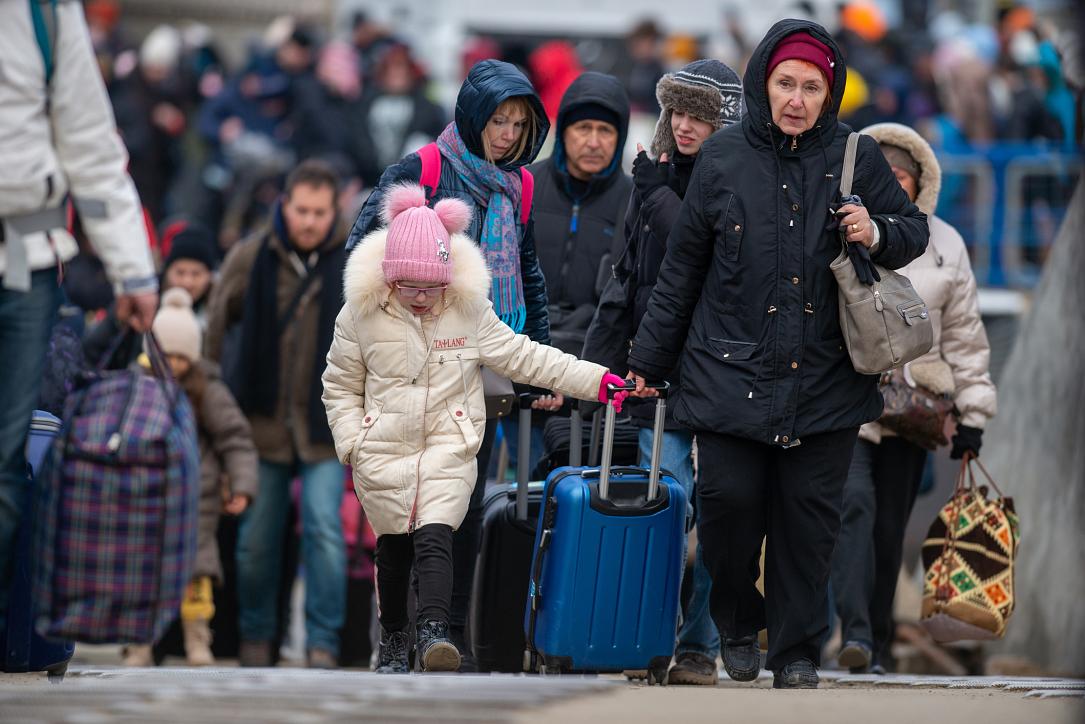Ukrainians in Romania say they have been treated fairly, but they wish to go home



Almost half (49%) of Ukrainians living in Romania want to return to Ukraine, the highest rate relative to the average, 35%, according to a survey conducted by the European Union Agency for Fundamental Rights (FRA). At the same time, the proportion of Ukrainians who say they have been treated unfairly at some point was lowest in Romania (40%).
The FRA report titled "Fleeing Ukraine" presents the direct testimonies of approximately 14,500 people who have fled the war and settled in the EU. The survey shows that there are still practical difficulties for refugees from Ukraine in issues such as language, housing, education, employment, cost of living, and health.
Although 1 in 3 Ukrainians now feel they are part of the host country's community, the same number of people would like to return to Ukraine. Almost half (49%) of the respondents living in Romania want to return to Ukraine, compared to an average of 35% of Ukrainians living in other countries, according to the FRA report cited by G4Media.
Lack of knowledge of the host country's language is the main reason why people give up on education, do not work, or do not seek medical assistance. In all surveyed countries, only 10% of respondents spoke the host country's language well, perfectly, or at the level of their mother tongue.
A quarter of respondents (25%) did not speak the language at all. This proportion reached 65% in Estonia, 58% in Romania, and 57% in Hungary. In Poland it was only 12%, while in the Czech Republic and Slovakia it was 18%.
Regarding education, 59% of children attend online courses at a Ukrainian school or learn on their own with materials or support from Ukraine.
According to the survey, although 59% of the interviewed persons pay for housing, they often have to share facilities such as toilets or kitchens. Many lack privacy or a quiet space for their children to learn. There were notable variations between countries in this regard. Most respondents in Estonia (65%) and Poland (54%) paid in full for their housing. Two-thirds of respondents in Romania, on the other hand, were living in their respective housing without paying (the highest rate among the participating countries) - compared to an average of 35%. In Italy (58%), and in Slovakia (53%) a majority of respondents did not pay for housing.
Most of those who arrived in Romania (72%) stayed in private housing, which is the highest rate in the survey.
The same survey shows that only one in three Ukrainian refugees have a paid job, and that a third of women do not work because they have to take care of children or elderly or sick relatives. 48% say their new job is below their level of education, and 30% say they have been exploited at work. Meanwhile, 79% face difficulties in meeting their daily expenses.
In Romania, 25% of women and 38% of men among the Ukrainian refugees had a paid job at the time of the survey. For women, this was one of the lowest rates in the survey.
Since their arrival in the host country, 49% of Ukrainian refugees feel sad and depressed, the survey reveals. Half of the young children have sleep and/or concentration disorders. The proportion of respondents who sought and received medical or psychological support was lower in the Czech Republic (68%) and Spain (69%). In contrast, in Romania and Hungary, the proportion was much higher (both 88%).
Asked who helped them since their arrival in the host country, on average, 56% of respondents said they were helped by the authorities. This proportion was higher in the Czech Republic, Estonia, and Germany. In Hungary and Romania, volunteer organizations were mentioned as offering assistance more often than any other category (Hungary, 45%, Romania, 59%).
Survey respondents were also asked how often they felt they had been treated unfairly in the EU member state hosting them because they came from Ukraine. In all the surveyed member states, more than eight in ten respondents (81%) stated that they had never or rarely been treated unfairly because they come from Ukraine. The proportion of those who reported having been treated unfairly at some point was lowest in Romania (40%), Spain (44%), and Hungary (46%). On average, 16% of respondents often or always felt treated unfairly. This proportion was higher in Italy (26%), Bulgaria (23%), and the Czech Republic (23%).
The survey was conducted in August-September 2022 in the 10 EU countries hosting a large number of people under temporary protection: Bulgaria, the Czech Republic, Estonia, Germany, Italy, Poland, Romania, Slovakia, Spain, and Hungary.
(Photo source: Tutye2001 | Dreamstime.com)